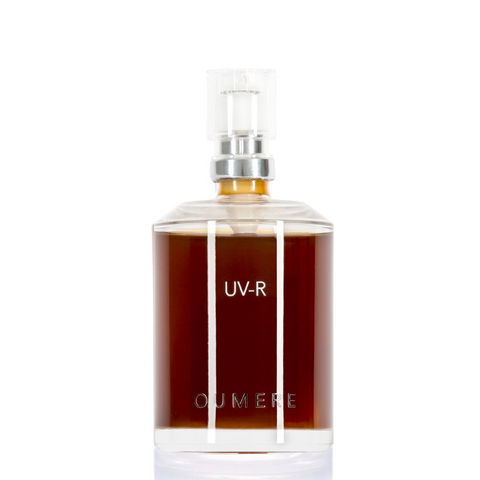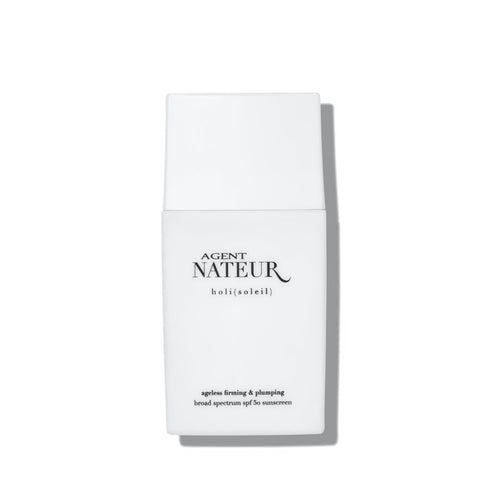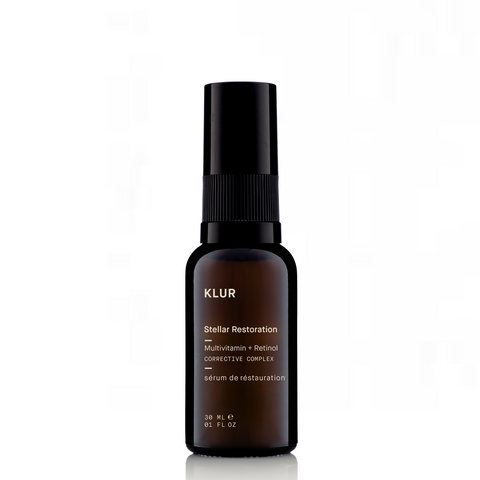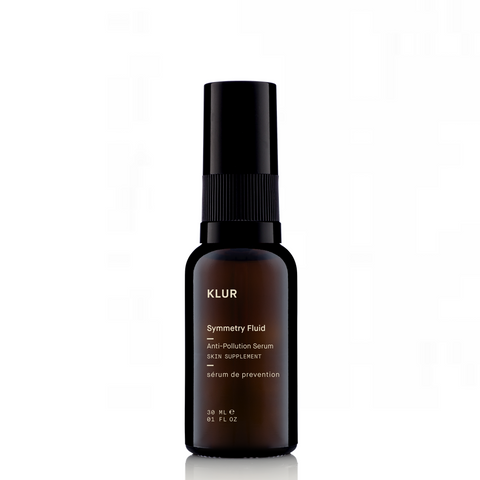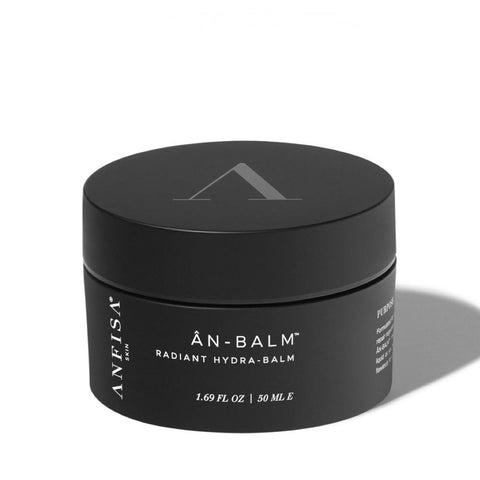Does Blue Light Really Damage the Skin? Does Anti-Blue Light Skincare and Supplements Work?
June 04, 2024
Over the last year or two, more and more beauty brands have been launching skin care products and even supplements that claim to fight the effects of blue light on the skin.
Now, natural blue light, found in sunlight, helps regulate our circadian rhythm and boosts mood and alertness, so it is necessary in human life. However, emerging research suggests that prolonged exposure to certain types of blue light may have negative effects on our skin.
Having said that, these so-called anti-blue light skin care products and supplements work?
In this article, we will discuss what blue light is and its various forms, uncover its effects on the skin, and provide practical tips on how to protect your skin from its potential harm.
Blue light is a high-energy, short-wavelength light with wavelengths ranging from approximately 380 to 500 nanometers that exists naturally in sunlight, and is also emitted by electronic devices such as smartphones, computers, and LED lights. It falls within the visible light spectrum——in other words, blue light is what makes the sky blue on a sunny day and what gives the screens of your electronics devices its bright and clear background.
Although blue light has been demonized for damaging the skin and eyes, not all blue light is harmful! In fact, natural exposure to blue light during daytime hours can have positive effects on our mood, energy levels, and overall well-being; whilst, blue light at certain settings can even help improve psoriasis, atopic dermatatis, eczema and acne!
While blue light in moderation can be beneficial, there are specific types of blue light that have raised concerns due to their potential impact on the skin. The two main categories of concern are High Energy Visible (HEV) blue light and blue light from digital screens.
HEV blue light has shorter wavelengths and higher energy levels compared to other visible light. Research has shown that in the 380–400 nm range, it could potentially be damaging to the skin, with the risks seemingly lessen somewhat toward the top end, at 500 nm.
Now, although the blue light from the sun and from electronic devices are technically the same high-energy visible light, natural blue light is of much greater magnitude and intensity than artificial blue light. For comparison purposes, the sun’s blue light intensity is about 7700 μW/cm2, which is significantly higher than that of a Philips LED television at 78 μW/cm2, a Samsung computer screen 22 μW/cm2, or a Samsung mobile phone at 11 μW/cm2.
On the other hand, the blue light wavelength emitted by electronic devices generally falls within the range of 400-490nm, which does not belong to HEV (High Energy Visible) blue light. The issue is that due to the increasing reliance on electronic products, most people are exposed to it for a prolonged period of time on a daily basis, whether it's working on a computer, watching TV and scrolling social media after work, or being exposed to LED lights. That's why the issue of blue light has gained more attention than before.
|Increase Free Radicals and Accelerate Skin Aging
Blue light can generate a range of free radicals and reactive oxygen species (ROS), with the most abundant being superoxide. A certain amount of free radicals is necessary to prevent the invasion of bacteria, fungi, and other pathogens from entering the body, and therefore are essential for maintaining normal physiological functions. However, when there is an excess of free radicals in the body, they can cause oxidative stress, leading to skin damage and accelerated skin aging. This includes damaging skin cells, causing DNA damage, triggering inflammatory responses, destructing healthy collagen and elastin in the skin, promoting the formation of wrinkles and sagging, inhibiting the synthesis of new collagen, impeding the skin's repair capacity, inducing hyperpigmentation, and reducing antioxidant levels in the skin.
Product Recommendation
OUMERE
UV-R™ <- Click to Shop
|Inducing Hyperpigmentation
Free radicals produced by exposure to blue light may impact the melanogenic precursors and opsin stimulation, interrupt the function fo the melanocytes in the skin, increase the enzymes tyrosinase and dopachrome tautomerase (DCT) that are responsible for melanogenesis, which then lead to pigmentation alterations, hyperpigmentation, melasma, and uneven and excessive dark blotches on the skin.
However, blue light-induced hyperpigmentation seem to be more pronounced and persistent only in people with darker skin tones (Fitzpatrick types III–VI), due to the more prevalent tyrosinase and dopachrome tautomerase protein complex in the melanocytes seen in darker skin types.
Product Recommendation
KLUR
Brilliant Light Multi-Correctional Repair Serum <- Click to Shop
|Redness and Swelling
Research shows that blue light increases the production of the proinflammatory cytokine TNF by activating the activator protein 1 (AP-1) and nuclear factor b (NF-B). This could to lead to redness and swelling similar to exposure to comparable levels of UVA rays.
Product Recommendation
MARIE REYNOLDS LONDON
Restore <- Click to Shop
Product Recommendation
MARIE REYNOLDS LONDON
Butter Balm <- Click to Shop
Although blue light can cause various kinds of damages to the skin, at controlled settings, blue light can actually be beneficial and is used to treat conditions such as psoriasis, atopic dermatitis, and acne.
|Psoriasis, Atopic Dermatitis, Eczema
Research has shown that blue light at controlled intensity does not cause cell degradation; in fact, it can reduce dendritic cells DC activation and maturation and decrease their effect on cytokine secretion by T cells, providing an anti-inflammatory effect.
Blue light also seem to help by stimulating the production of a basic leucine zipper protein Nrf2, which provides anti-inflammatory properties by inhibit the proinflammatory NF-kB.
In addition, other research has shown that blue light can improve the symptoms of these skin conditions by reducing the proliferation of human keratinocytes via nitric oxide (NO)-mediated initiation of differentiation of keratinocytes.
|Acne
One of the most common forms of blue light therapy that people are familiar with is the use of blue light pens or blue light LED masks, which are believed to be beneficial for improving acne. In simple terms, blue light also provides beneficial effect to acne as it decreases ropionibacterium acnes follicular colonization by the activation of endogenous bacterial porphyrins, whilst preventing sebocytes from producing lipids that cause acne.
Yes, and no.
The truth is, many skincare products that you are using already offer blue light protection or can mitigate the effects of blue light exposure without your knowing. So why are there suddenly so many skincare products claiming to be “anti-blue light”? Well, that is just how marketing in the beauty industry works, by using buzz words that tap into your fears.
In short, unless you are currently not using any of the following types of products, there is really no need to incorporate any addition product that claims to specifically target blue light induced skin damages.
|Mineral Sunscreen
Currently, the most effective skincare product that can protect against blue light is mineral sunscreen that contains zinc oxide and/or titanium dioxide, as they can reflect blue light away from the skin.
Note that not all sunscreens are the same——chemical sunscreens do not provide blue light protection as they work completely differently.
Product Recommendation
AGENT NATEUR
holi(sun) SPF50 Tinted Sunscreen <- Click to Shop
Product Recommendation
AGENT NATEUR
holi(soleil) SPF50 Ageless Firming & Plumping Sunscreen <- Click to Shop
Product Recommendation
TWELVE BEAUTY
Artemisia Power Protection Moisturiser SPF50+ <- Click to Shop
|Foundations
Another ingredient that is beneficial in protecting against blue light is iron oxide found in foundations, as this particular ingredient also work the same way as zinc oxide and titanium dioxide by reflecting blue light away from the skin.
|Antioxidants
Our cells are made of molecules that contain electrons that must stay in pairs to stay stable and healthy. Free radical in its simplest form is an unstable atom or molecule that is missing an electron. To make itself whole, it attacks the nearest stable molecule and steals an electron. Producing free radicals is therefore the biggest form of threat blue light induces that damages our skin.
Luckily, antioxidants in skincare products can scavenge the free radicals and offer up one of their electrons, thereby preventing healthy cells and tissues from breaking down. This halts the chain reaction of free radical production, thereby preventing oxidative stress and skin cell damages, and allowing our skin to heal and repair itself.
For more detailed information on free radicals and antioxidants, read What are Free Radicals and Why All Skin Types Need Antioxidants and Antioxidants, The Key To Fighting Skin Aging 。
Product Recommendation
KLUR
Stellar Restoration Corrective Complex <- Click to Shop
Product Recommendation
AGENT NATEUR
holi(lift) Ageless Lifting and Firming Serum <- Click to Shop
There is currently no definite research on which types of antioxidants are better or more effective than others at protecting the skin from the effects of blue light. In fact, since there are more than one single type of free radical out there, and they can attack different parts of the skin via different pathways, it is thus best to take a holistic approach, and supplement the skin with a cocktail of antioxidants, instead of focusing on one and hope for the best.
Now, it is impossible to list all the antioxidants, as there are thousands of different substances that can act as antioxidants, but here are some examples (some may even be broken down into over 600 different types):
- Omegas-3, 6, 7 and 9
- Vitamins A, B, C, D, E, and K
- Superoxide Dismutase
- Green Tea, which contains polyphenols, such as flavanols, flavandiols, flavonoids, and phenolic acids
- Beta-Glucan
- Polyphenols, including resveratrol, catechins and flavonoids
- Saponins
- Glutathione
- Ergothioneine
- Carotenoids, such as astaxanthin and lutein
- Ferulic Acid
- Phenols
- Quercetin
- Triterpenes
- Minerals
Product Recommendation
KLUR
Symmetry Fluid Skin Supplement Concentrate <- Click to Shop
Product Recommendation
ANFISA
ÂN-BALM Radiant Hydra Balm <- Click to Shop
Scientifically, there is currently no substances or supplements that can block blue light from the inside.
The anti-blue light supplements on the market are merely a combination of antioxidants from the above mentioned list. In other words, if you are already eating a healthy, balanced diet, drinking green tea, and taking supplements such as krill oil, vitamins, etc., there is no need to add another anti-blue light supplement as they work just the same.
As mentioned, it's about gimmick and fearmongering.
Product Recommendation
MARIE REYNOLDS LONDON
Ocean EFA <- Click to Shop
Product Recommendation
MARIE REYNOLDS LONDON
Vegan C <- Click to Shop
Skincare-wise, as long as you are using mineral sunscreen, foundation, and products rich in antioxidants, you are already protected.
Another layer of protection is to cover the screens of your computer, laptop, and mobile phone with blue light screen shields, which also protects your eyes besides your skin. Some of these devices also have a setting that disables blue light in favor of yellow light (often called night mode)——turn it on, and both your eyes and skin will thank you.
Also, give your skin and eyes regular breaks from screen time. Implement the 20-20-20 rule: every 20 minutes, take a 20-second break to focus on something 20 feet away.
Also in The Journal

The Anti-Aging Gold Standard: How Retinol Reshapes The Skin
November 12, 2025
Learn why retinol is the gold standard for anti-aging, how it works, what similar ingredients exist, and some common myths and misconceptions.

The Gut-Skin Connection: The Path to Healthy Skin
October 26, 2025
Acne, eczema, rosacea, and sensitivity can all be linked to the gut health, and even gluten? Learn all about the connection between the gut and the skin.

The Secret to Reversing Skin Aging! How Growth Factors & Peptides Help Turn Back the Clock
October 13, 2025
Tired of wrinkles, sagging skin, lack of elasticity, inflammation, dryness, and even hair loss? Learn how growth factors and peptides reverse skin aging.
+Recent Articles
-
The Anti-Aging Gold Standard: How Retinol Reshapes The Skin
November 12, 2025
-
The Gut-Skin Connection: The Path to Healthy Skin
October 26, 2025
-
The Secret to Reversing Skin Aging! How Growth Factors & Peptides Help Turn Back the Clock
October 13, 2025
-
The Best Ways and Times to Take Different Supplements
August 19, 2025
-
Luxury vs. Budget-Friendly Skincare Products——What Are Their Differences?
August 06, 2025
-
How to Prevent and Improve Post-Inflammatory Hyperpigmentation (PIH)
July 10, 2025
-
How to Prevent and Improve Post-Inflammatory Erythema (PIE)
July 08, 2025
-
The Ultimate Cleansing Guide to Improve Skin Conditions
June 03, 2025
-
Do You Have Sugar Face? How Does Sugar Affect Our Skin and Appearance?
May 20, 2025
-
Do You Have Gluten Face? How Does Gluten Affect Our Skin and Appearance?
April 15, 2025
Subscribe to get skincare knowledge delivered to your inbox!


